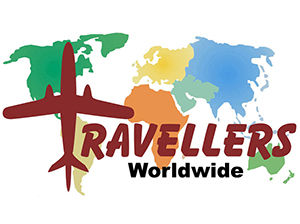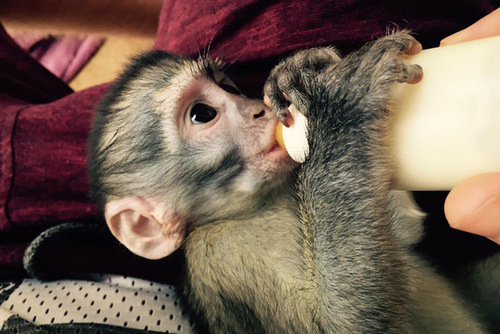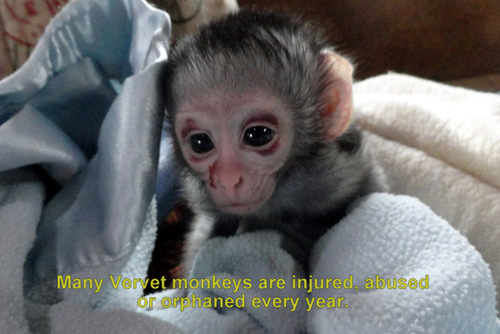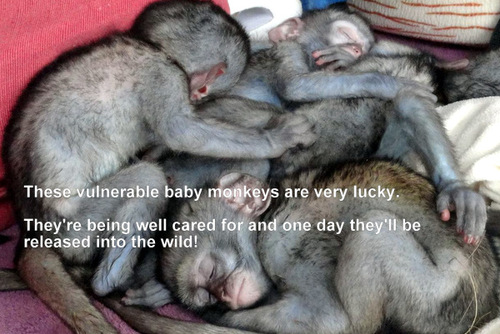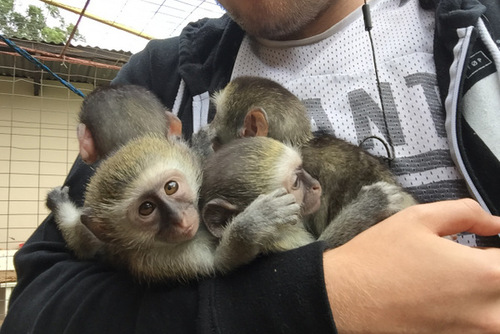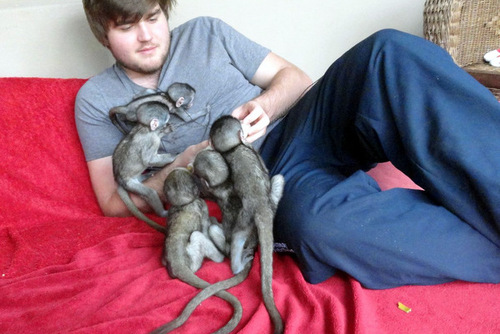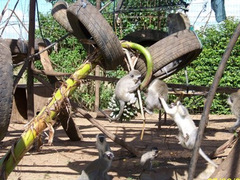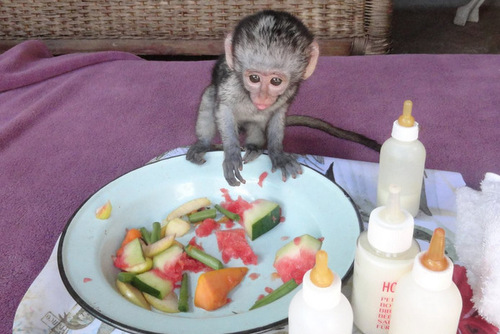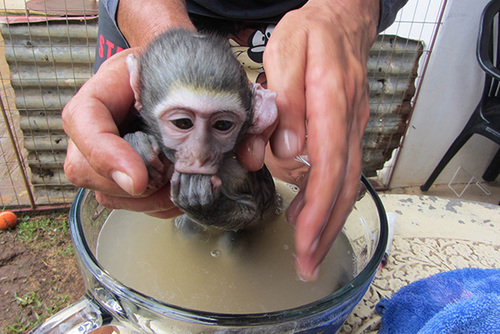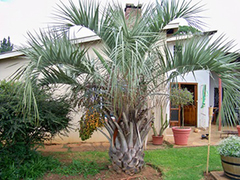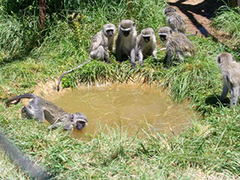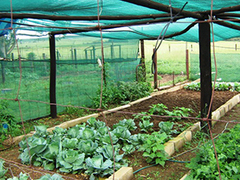You'll work with a Non-Profit Organisation that specialises in the care, rehabilitation & return to the wild of Vervet Monkeys that have been injured, orphaned or displaced, usually as a result of actions on the part of people. This Rehabilitation project is run by a non-profit organisation and is located in KwaZulu-Natal (KZN). The Centre takes in rescued Vervet Monkeys from all around the country.
The work they do is genuinely to help the monkeys, so there is little hands-on work because it's important that the monkeys aren't human-habituated. This would significantly reduce the possibility of being able to release them back into the wild - which is the Centre's primary aim.
The Vervets are kept safely in enclosures until such time they are ready to be released into the wild, far from human habitation. This usually takes about two to three years but, depending on the amount of human contact the monkeys have had, the de-humanising could perhaps take a little longer. During this time the monkeys are gradually weaned from close human contact and the troops are built up to ensure that they form a coherent relationship. Vervets are very social animals and cannot be released individually.
The releases start to take place from September (which is Spring in South Africa) and continue through the summer months. After they have been released, the Vervets need supplementary feeds for two to three weeks until they learn to completely fend for themselves. They are also monitored for two to three months after their release.
WORK CONTENT
As these Vervets are being prepared for “the outside world” and by necessity have to be kept in cages until they have been cared for, rehabilitated and prepared for release, the contribution you can make to improving their daily pre-release lives is enormous. The range of work is quite diverse and varied, and wide-ranging, including:
Feeding the Monkeys: This includes not only feeding, but also food preparation. You'll spend an hour or two chopping fruit and vegetables to feed to the Vervets in the outdoor enclosures.
Growing the food to feed the Monkeys: Bruce and Sandi, who run the Centre, buy the fruit that the monkeys need, but the gardens grow a constant supply of vegetables which need to be looked after. If you have green fingers, they will come in handy (but not to worry if you don’t, the monkeys won’t notice!) You can help to sow seeds when necessary, keep the veggies well watered and harvest them when they are ready to be eaten ... and you'll then have the undying devotion of the Vervets, who are always hungry!
Enclosure Enrichment: Some of the most satisfying work you can do will be to provide some enclosure enrichment and mental stimulation. This is an essential part of keeping the Vervet Monkeys happy and occupied. You can use your creativity to provide useful “toys” and games for them and offer them a different element to the usual daily routine.
The monkeys take great interest and delight in new areas to explore and will really enjoy your contributions to this facet of their enforced enclosure until they can be released. (We provide our volunteers with an in-house guide to suggestions for enclosure enrichment and you may be able to use or adapt some of the suggestions for Vervet Monkeys.)
Data Collection: Records of all the monkeys and the releases have to be kept, so if paper-work or collating data is your forte, your assistance will be hugely appreciated in that department.
The Centre's Facebook and Social Networks: Bruce tries his level best to update the Centre’s Facebook page on a daily basis, but he doesn't always get the time. You can use your computer skills to keep the Facebook page fresh and interesting as well as helping with the web site.
Monkey Releases - freedom at last!
The older Vervet Monkeys start to be released from September through to the early summer and you would be required to assist with these releases. You may stay on the release site for a few weeks to monitor the integration to normal Vervet monkey life and to ensure a successful rehabilitation and release.
Post-Release Feeding is necessary whilst the Vervets get used to their new “home” and learn where the natural food sources are, and you'll help by taking food to the feeding stations if you are on site. The Vervets usually need to be given food for about 2 or 3 weeks after their release.
Post-release Monitoring: The newly released troop must also be monitored to check for any injuries or members that have been excluded from the troop. Monkeys who are in such situations could possibly have a slim chance of survival due to their injury or isolation. In extreme cases, re-capture may be necessary in the best interest of the individual concerned. Each release poses its own set of circumstances and you'll have a very important role to play in the monitoring.
ACCOMODATION:
For the duration of your stay you will live in the house with Bruce and Sandi, the owners and runners of the Project. There are two bedrooms and one “room in the roof” for volunteers . You will share a bathroom with other volunteers and the rest of the house is communal. For the hot African summer months they have a swimming pool right next to the house which you can cool off in at any time.
WHAT TO DO NEXT:
If you’d like more information about this or any of our projects, please email or call us! If you’d like to apply for this project, please go to our website and complete the application form. As soon as we receive it, we’ll liaise with you and then start making your travel adventure happen.

